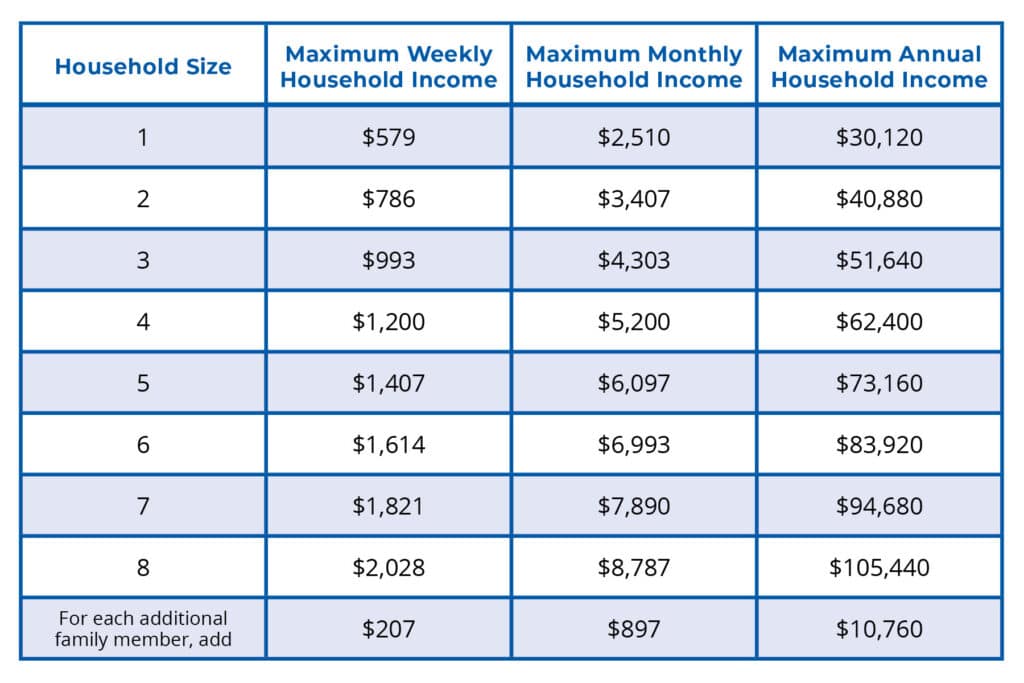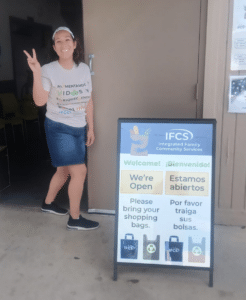 Summer is here in beautiful Colorado. With it, families are going on vacation, gardening projects have begun in earnest, and outdoor activities are in full swing. Summer break means schools are closed and the regular meals some kids depend upon are gone. In Colorado, 42% of K-12 students are eligible for free or reduced lunch programs. Without school in session, families struggle to provide adequate nutrition for their kids. This is a concern for the team at IFCS because their mission is to bring the community together to nourish lives. In this blog post I had the pleasure to speak with Miriam Noriega Diaz, the Program Director for IFCS, to get a better understanding of current hunger in the community and what IFCS is doing to address these needs.
Summer is here in beautiful Colorado. With it, families are going on vacation, gardening projects have begun in earnest, and outdoor activities are in full swing. Summer break means schools are closed and the regular meals some kids depend upon are gone. In Colorado, 42% of K-12 students are eligible for free or reduced lunch programs. Without school in session, families struggle to provide adequate nutrition for their kids. This is a concern for the team at IFCS because their mission is to bring the community together to nourish lives. In this blog post I had the pleasure to speak with Miriam Noriega Diaz, the Program Director for IFCS, to get a better understanding of current hunger in the community and what IFCS is doing to address these needs.
Meet IFCS’ Program Director
Miriam was born in Mexico and grew up in the Bay Area of California. She was employed there for over 10 years working with immigrants and those impacted by deportation. For the past five years she has been a program director for a non-profit and specialized in Human Relations. In 2021 she, her spouse, and her dog moved to Colorado to establish a permanent home. This year, Miriam assumed the role of IFCS’ Program Director, and she is responsible for overseeing the Food Market and other IFCS programs, fostering community partnerships, and staying informed about current needs in low-income households.
 Addressing Food Insecurity in Colorado
Addressing Food Insecurity in Colorado
Food insecurity is a significant issue in Colorado. Over half of the households served by IFCS report no source of income, and average household size is 4-6 people. This necessitates providing larger quantities of food, which IFCS addresses by purchasing additional supplies.
Colorado is proactive in recognizing and addressing food insecurity. The state views food programs as a basic need rather than a handout. Governor Polis recently signed the Summer EBT bill into law, a federal program that will support low-income families by providing additional resources during the summer. This bill is expected to positively impact over 300,000 Colorado children.
Supporting Those in Need
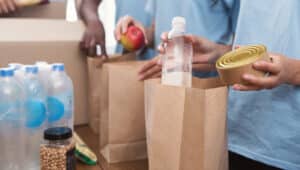 In our community, addressing food insecurity and poverty is a collective effort that requires dedication, compassion, and innovative solutions. One way that IFCS accomplishes its mission is by partnering with local nonprofits who primarily serve unhoused populations. Through the ‘Single Meal Program,’ started by a previous program director, IFCS provides easy-open, no-cook food items, or ‘On-the-Go Meals,’ to organizations like Giving Heart, SAFER, Englewood Library, Movement5280, HAAT Force, and seasonal organizations like Severe Weather Shelter Network. Under Miriam’s leadership, IFCS has expanded this program to provide no-cook food on a monthly basis to seven partners, as well as travel-size hygiene products when available. These partners then distribute product to our most in-need neighbors. IFCS relies on in-kind and monetary donations to support this program.
In our community, addressing food insecurity and poverty is a collective effort that requires dedication, compassion, and innovative solutions. One way that IFCS accomplishes its mission is by partnering with local nonprofits who primarily serve unhoused populations. Through the ‘Single Meal Program,’ started by a previous program director, IFCS provides easy-open, no-cook food items, or ‘On-the-Go Meals,’ to organizations like Giving Heart, SAFER, Englewood Library, Movement5280, HAAT Force, and seasonal organizations like Severe Weather Shelter Network. Under Miriam’s leadership, IFCS has expanded this program to provide no-cook food on a monthly basis to seven partners, as well as travel-size hygiene products when available. These partners then distribute product to our most in-need neighbors. IFCS relies on in-kind and monetary donations to support this program.
 In addition, IFCS recently partnered with Innovative Housing Concepts (IHC), a nonprofit with a mission to support homeless and low-income individuals and families by offering affordable housing options in the tri-cities of Sheridan, Englewood, and Littleton. Through May and June, resource navigators at IFCS screened, interviewed, and referred 12 families to IHC to be considered for affordable housing. All of these households were unhoused at the time of application. This program is currently closed, and IFCS hopes to open additional rent assistance and rapid rehousing programs in the near future.
In addition, IFCS recently partnered with Innovative Housing Concepts (IHC), a nonprofit with a mission to support homeless and low-income individuals and families by offering affordable housing options in the tri-cities of Sheridan, Englewood, and Littleton. Through May and June, resource navigators at IFCS screened, interviewed, and referred 12 families to IHC to be considered for affordable housing. All of these households were unhoused at the time of application. This program is currently closed, and IFCS hopes to open additional rent assistance and rapid rehousing programs in the near future.
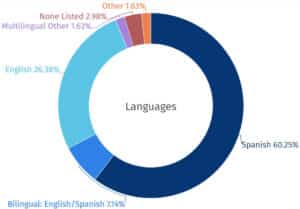
Data-Driven Decisions
Miriam analyzes data to understand who is utilizing IFCS services. As a recipient of The Emergency Food Assistance Program (TEFAP), IFCS collects basic demographic information at enrollment, and food program participants are asked to update their information every 160 days.
This demographic analysis helps IFCS tailor services to meet the specific needs of their participants. For instance, knowing that 60% of The Market’s visitors are Spanish-speaking, IFCS prioritizes bilingual signage, hiring a bilingual program team, and offering translation tools to volunteers. By communicating in the “language of the heart,” families feel more welcome, and this ensures that IFCS is serving the community as effectively as possible.
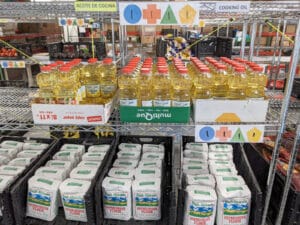 Over the last few years, IFCS has also shifted food offerings to include ingredients that are cross-cultural, such as frozen meat, butter, oil, flour, rice, beans, and fresh produce. This allows all who visit to find something they can use at each visit. More recently, Miriam has helped implement an inventory process, allowing IFCS to better track the foods families want the most. The long term goal is to purchase more highly desired product, and increase how much a family can take during their visit.
Over the last few years, IFCS has also shifted food offerings to include ingredients that are cross-cultural, such as frozen meat, butter, oil, flour, rice, beans, and fresh produce. This allows all who visit to find something they can use at each visit. More recently, Miriam has helped implement an inventory process, allowing IFCS to better track the foods families want the most. The long term goal is to purchase more highly desired product, and increase how much a family can take during their visit.
In addition to the different cultures IFCS serves, the fact that over half of food program participants are reporting no-income has prompted IFCS to partner with Benefits in Action, who helps enroll families in social programs, such as the Supplemental Nutrition Assistance Program (SNAP) and Medicaid. Resource Navigators are also tasked with researching additional services in the community, so that they can suggest potential resources for rental, legal, medical assistance, as well as English Classes and employment opportunities.
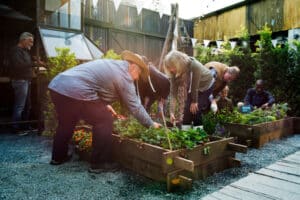
Emphasizing Local Produce
One unique aspect of IFCS’s approach is the emphasis on local produce. Fresh, locally grown vegetables are both nutritious and tasty. Often when families select food from IFCS, they are most excited about the produce selection.
Through the year, IFCS purchases fresh produce like bananas, tomatoes, and jalapeños from local business Colo-Pak Produce. IFCS also receives two pallets of donated grocery rescue produce from Food Bank of the Rockies on a weekly basis, providing a rotating variety of produce each week.
In the summer, many local growers generously donate leftover produce to IFCS, including local farmers like Sue Poet and community gardens like Hudson Gardens. A new partner Miriam met with recently is Grassroots Farmers, a collective of farmers and organizations farming organic sustainable solutions in the Denver and Boulder areas of Colorado. We look forward to receiving produce donations from the community through fall. Providing produce in The Market not only supports local agriculture but also ensures that food-insecure individuals have access to healthy options.
Training and Cultural Sensitivity
Understanding the diverse backgrounds of IFCS clients is essential for providing compassionate and effective support. In May, Miriam offered Trauma Informed Care training sessions to IFCS volunteers and staff to respond appropriately to program participants, many of whom may have experienced difficult situations, such as food and housing insecurity, immigration, etc. Through this training, the IFCS team became aware of possible trauma responses, how to respond to resulting behavior, and self-care techniques. The Resource Navigation team has also attended additional Trauma Informed Care sessions and Human Trafficking trainings. The team at IFCS aims to be ready for anything that may come through their door, and to respond with compassion.
Get Involved
There is a lot happening at IFCS, and your support makes a meaningful difference. Whether through donations or volunteering your time, you can help ensure that everyone in our community has access to the resources they need. We encourage you to be part of this vital work and help make this summer safe and fun-filled for all. To donate or learn more about how you can get involved, visit the IFCS donation page today. Your contribution can bring hope and support to those who need it most.

Kathryn Adams is a Nurse Freelance Writer who started out her career as a Firefighter EMT-B then RN and has transitioned to professional writing. She started volunteering with IFCS in 2018 because she has a passion to help others. When she isn’t writing she enjoys hiking, yoga, skiing, and traveling. She lives with her husband, dog and kitty in the Colorado Mountains.


